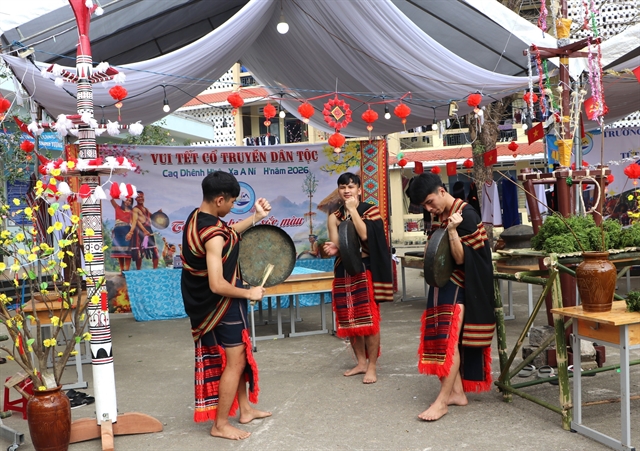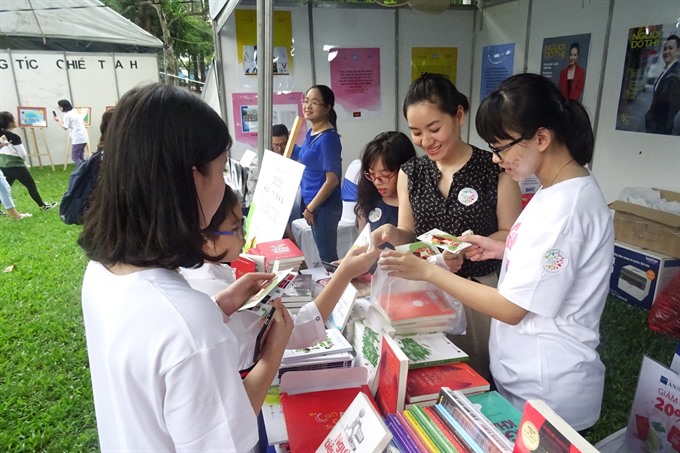 Society
Society

A campaign promoting non-violent education was launched in Hà Nội yesterday.
 |
| Parents and children browse promotional material on a non-violent society at a cultural fair in HCM City. — VNA/VNS Photo Gia Thuận |
HÀ NỘI — A campaign promoting non-violent education was launched in Hà Nội yesterday.
Running from now until mid-November, it aims to raise awareness among parents, teachers, and caretakers on stopping child abuse and eliminating violence in child upbringing and education.
Various outdoor activities will be held in Hà Nội, Huế City and HCM City to create dialogues and discussions on these issues.
Tentative venues include the walking area around Hoàn Kiếm Lake in Hà Nội, and Nguyễn Huệ Flower Street in HCM City.
Educational materials on the issues will be distributed through schools and other education institutions.
The campaign is run by the Department of Child Care and Protection (DCCP) under the Ministry of Labour, Invalids and Social Affairs (MOLISA), in collaboration with a number of domestic and international organisations working for children’s rights.
Speaking at the campaign’s launch yesterday, Nguyễn Thị Nga, deputy director of DCCP, said: “After the national online conference on child protection chaired by Prime Minister Nguyễn Xuân Phúc [in August], we have realised it is of utmost necessity to have awareness-raising activities on the issue.”
“However, it is also important not to organise too many activities without a specific purpose,” she added. “So with this campaign we are putting the focus on promoting non-violent education.”
Nguyễn Phương Linh, director of the Management and Sustainable Development Institute (MSD Việt Nam), said the campaign was planned based on surveys of children’s and parents’ opinions.
“We try to send out clear key messages such as ‘Stop hitting’, ‘Stop shouting’, ‘Help children find solutions’… in the hope that parents, teachers and caretakers will put them into action,” she said.
About 2,000 cases of child abuse are reported in Việt Nam each year, 60 per cent of them are sexual abuse, according to statistics from MOLISA. Violence against children often occurs in the form of physical punishment. — VNS




